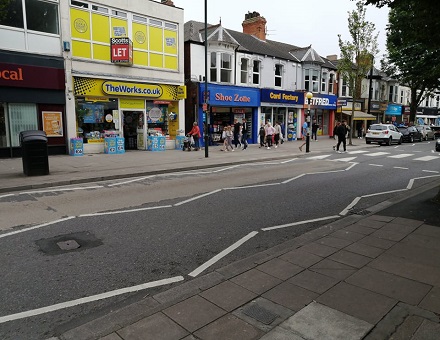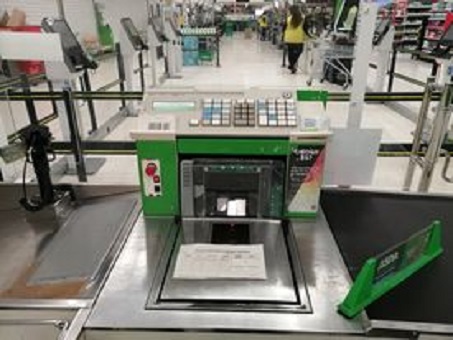Are carbon neutral shops possible?

COP26 has released its draft declaration, and it falls short of what climate activists and scientists wanted. Countries are being “asked” to build more ambitious plans.
Most countries have published intentions, some of which will be met, and some might not. Lobbyists will be trying to water the plans down, and even when given the force of law, some plans will still face difficulties. For example the UK’s plan to move to electric vehicles will not be effective unless sufficient EV engineers are trained to repair and maintain them.
However some plans may be taken seriously, including those relating to carbon neutral shops.
Bookcases and shelves from ManoMano – click here
Business intelligence provider Bloomberg has declared that “most UK retail properties will become obsolete under net zero (proposals)”.
Property accounts for 17% of UK carbon emissions, and one quarter of that is from shopping centres, retail parks and the High Street (according to the Climate Change Committee).
The aim is for all shops to have a B energy rating by 2030, and be carbon neutral by 2050. Property advisor Savills believe that 83% of retail space will need improvement, and that over 10% will struggle to reach stricter regulations to be introduced within two years.
The High Street was in trouble before the pandemic, largely because of the rise of online shopping. The pandemic made things worse, with high profile store closures. Intu, which owned and managed a number of UK shopping centres collapsed last year.
One of the former Intu shopping centres is at Merry Hill in the West Midlands, now owned by Ellandi. It has plans for a major redevelopment which, they claim, will make it carbon neutral by 2030, largely through installing solar panels. The proposals include installing over 200 electric vehicle charging points.
Many shopping centres and retail parks are owned by wealthy investors, who will be able to finance the changes towards carbon neutral shops if they are required to do so. Some may not be able to do so, and the changes towards mixed use of properties or change of use is likely to accelerate.
Supermarkets set targets
Bamboo is regarded as the most sustainable resource on Earth. For a range of gifts made from bamboo from Always Personal – click here
The UK’s supermarkets have set targets, possibly anticipating legislation, and perhaps to advertise their green credentials Their statements are carefully worded, and it isn’t always easy to see how they will be achieved.
In March 2021 Morrisons stated that their British farm suppliers will be net zero by 2030. Recently the company stated that it will be carbon neutral “in its own operations” by 2035, a target that has also been set by Sainsbury’s. Tesco has also set a 2035 target to become carbon neutral, and wants its supply chain to be carbon neutral by 2050. Tesco also says that the investments held by its pension fund will be carbon neutral by 2050.
Asda has stated that its operations can be carbon neutral by 2040, and that it will cut food waste by 20% by 2025. Waitrose is less ambitious, but still thinks that its UK farming suppliers will be carbon neutral by 2035, and plans to replace its home delivery vans with electric vehicles by 2030.
The Co-Op wants to be carbon neutral by 2040, and its own brand food and drinks by 2025.
Personally, I’m not sure how cucumbers can be transported 7,000 miles from Chile and still be carbon neutral!
.

